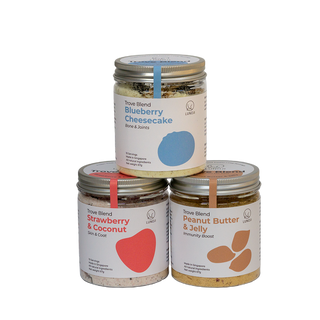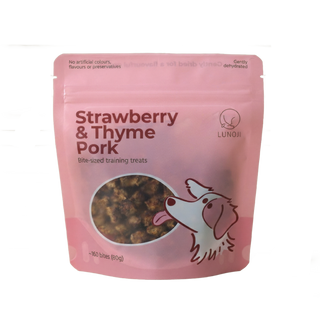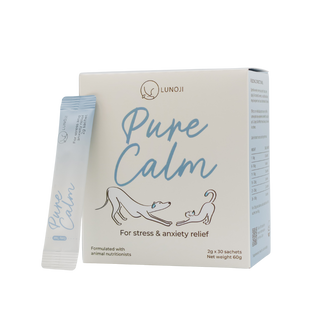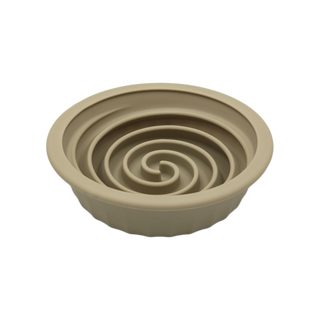Today’s pets are more than companions, they’re family. That’s why responsible pet care has evolved beyond just food, shelter, and vaccinations. As our understanding of animal health continues to grow, so does our responsibility to ensure that our pets thrive in every way possible: physically, mentally, and emotionally. Like us, our furry friends benefit from a holistic approach that includes nutrition, exercise, mental stimulation, and access to the best veterinary and wellness tools available.
In this article, you’ll discover 7 practical tips to improve your pet’s general wellness. These tips are easy to incorporate into your daily routine and reflect both traditional care and modern innovations, including supplements and personalized health solutions.
Why Keeping Pets Healthy is More Important Than Ever
Maintaining your pet’s wellness is essential to ensuring a longer, more fulfilling life. A healthy pet is a happy pet, and regular wellness care helps prevent illness, reduce vet bills in the long term, and improve your pet’s mood and behaviour. Plus, early detection of any health concerns can make all the difference when it comes to successful treatment.
Whether you're a new pet parent or have had pets for years, being proactive about their wellness helps you form a stronger bond and keep their tails wagging for years to come.
Tip 1: Create a Consistent and Balanced Diet
Nutrition is the cornerstone of wellness. Your pet’s food fuels every aspect of their body, from muscle growth to immune function and digestion. Yet, many commercial pet foods can be lacking in essential nutrients or filled with preservatives, which makes it important to be mindful about what goes into their bowl.
Here’s how you can improve your pet’s diet:
-
Choose high-quality food: Opt for brands that list real meat, fish, or poultry as the first ingredient, and avoid foods with excessive fillers.
-
Tailor meals to your pet’s age and breed: Puppies and kittens need different nutrients than seniors, and large breeds may need more joint support.
-
Avoid overfeeding: Obesity is a common issue in pets and can lead to other health problems like diabetes or heart disease. To help with this, you can reduce their food portions and consider using a slow feeder, such as our Zen Bowl, which helps by pacing your pet’s eating and giving the brain more time to register fullness, so they feel satisfied with less food. This makes the transition to a healthier diet easier for both of you.
Feeding your pet right sets a strong foundation for their overall wellness and ensures their energy and immune systems remain strong.
Tip 2: Keep Your Pet Physically Active
Movement is just as important for pets as it is for humans. Regular physical activity helps maintain a healthy weight, improves cardiovascular health, and provides mental stimulation that can prevent boredom-based behavioural issues.
Easy ways to keep your pet active:
-
Regular walks or runs: Dogs need regular exercise based on their breed and energy level. Even cats can benefit from short play sessions that mimic hunting behaviours.
-
Interactive toys: Toys that encourage chasing, tugging, or problem-solving can keep pets engaged.
-
Play dates: Socializing your dog with other pups and humans (in safe, supervised environments) keeps them active and well-adjusted.
A pet that gets enough exercise tends to be calmer indoors and less prone to destructive behaviours. It also helps release pent-up energy in healthy, constructive ways.

Tip 3: Enrich Your Pet’s Mind Through Play and Social Time
Mental stimulation is often overlooked in pet care, but it is just as crucial as physical health. Pets can get bored, anxious, or depressed without enough engagement, especially indoor pets or those left alone for long hours.
Here’s how to keep your pet mentally sharp:
-
Puzzle feeders: These help turn mealtime into a fun and stimulating game for your pet. Not only do they help slow down fast eaters, but they also provide a valuable mental workout. One such example of a puzzle feeder is our Pebble puzzle toy, which is a great choice for making every meal more engaging and healthier.
-
Training sessions: Teaching new tricks or reinforcing basic commands helps your pet feel accomplished and closer to you. Just 5-10 minutes a day of training and bonding can go a long way!
-
Rotate toys regularly: Keeping a variety of toys and switching them out keeps playtime fresh and exciting.
-
Let them sniff: Dogs experience the world through their noses. Allow them to sniff on walks, which lets them learn about the world, provides mental stimulation, and keeps them calmer and more fulfilled. Indoor sniffing sessions with snuffle mats or simple scentwork games can also help.
Providing enrichment also reduces stress and strengthens the bond between you and your pet. It’s a fun and meaningful way to spend time together while keeping their minds engaged.
Tip 4: Support Internal Health with Supplements and Personalized Formulas
Even with a good diet, pets can benefit from added support in the form of natural supplements. These can address specific concerns like digestive health, joint mobility, or skin and coat condition.
The right supplements can significantly improve a pet's quality of life, whether by easing digestion, supporting joint health, or enhancing skin and coat condition. Beyond these general benefits, some pets may also need targeted solutions designed for specific situations. For instance, if your pet struggles with anxiety or stress, calming support can make a big difference in their daily comfort. That’s why at Lunoji, we’ve developed Pure Calm, a calming supplement for dogs and cats, formulated by certified animal nutritionists using human-grade ingredients like Lactium, L-Tryptophan, and L-Theanine. It promotes natural relaxation without sedation or altering your pet’s personality, and each gentle, clean formula comes in single-serve sachets to preserve freshness and ensure precise dosing.
While calming support is just one aspect of pet health, many pets can also benefit from more comprehensive nutrition. Multivitamins, for example, can be especially useful for picky eaters, senior pets, or dogs with special dietary needs where regular meals may not provide complete nutrition. They offer a broad spectrum of essential nutrients that support overall wellness. To dive deeper into how supplements can benefit your dog, you can explore this article on dog supplements and their benefits.
Tip 5: Prioritize Preventive Vet Visits
Routine vet checkups are essential to safeguard your pet’s health over the long term. While your pet may seem fine on the outside, many health issues can develop silently. Regular wellness exams allow veterinarians to detect subtle changes or early symptoms that could indicate more serious conditions later on. These visits typically include physical exams, weight checks, parasite screening, dental evaluations, and discussions about nutrition and behaviour.
Preventive care also includes staying on top of vaccinations, flea and tick prevention, and heartworm medications. By catching issues early, you reduce the risk of costly treatments down the line and help your pet live a longer, healthier life.
How often should your pet see the vet?
|
Life Stage |
Vet Visit Frequency |
|
Puppies/Kittens |
Every 3–4 weeks until 16 weeks |
|
Adults |
Once a year for wellness exams |
|
Seniors (7+) |
Every 6 months |
As pets age, their risk of developing health issues increases, which is why senior pets should visit the vet more frequently. In addition to standard exams, vets may recommend routine bloodwork or other diagnostics to monitor internal health markers.
Think of your vet as a wellness partner, not just someone to call when your pet is unwell. Consistent checkups play a vital role in keeping your pet healthy, comfortable, and happy.

Tip 6: Maintain Dental Hygiene
Dental hygiene is an area of pet care that’s frequently overlooked, yet it has a direct impact on your pet’s overall health. Bacteria from the mouth can enter the bloodstream and affect the heart, liver, and kidneys. In fact, periodontal disease is one of the most common conditions in pets over the age of three, and it often goes unnoticed until it becomes painful or causes serious health complications.
Tips to protect your pet’s teeth:
-
Brush regularly: Brushing your pet’s teeth daily with a pet-safe toothbrush and enzymatic toothpaste can significantly reduce plaque buildup. Never use human toothpaste, as it can be harmful to pets.
-
Offer dental chews: These are designed to mechanically scrape plaque off teeth while also satisfying your pet’s need to chew. Look for products approved by veterinary dental organizations. Consider your pets chewing style, select an appropriately-sized chew with the right hardness, and supervise chewing sessions.
-
Schedule professional cleanings: Depending on your pet’s breed, age, and oral health, your vet may recommend professional cleanings once a year or more. These procedures allow for deep cleaning under the gums and can identify dental issues that brushing alone may miss.
By keeping up with dental care, you’re not only improving your pet’s breath but also helping them avoid painful infections and costly dental procedures in the future. A clean mouth is a key part of a healthy body.
Tip 7: Give Your Pet a Safe, Loving Environment
Pets are sensitive to their surroundings, and just like humans, they need an environment where they feel safe, secure, and loved. Stress, fear, or lack of structure can lead to anxiety, destructive behaviour, and even illness. On the other hand, a calm and consistent environment promotes emotional stability, better sleep, and overall happiness.
Ways to improve your pet’s environment:
-
Set a consistent routine: Pets thrive on structure. Try to keep feeding times, walks, and bedtime consistent each day. This helps reduce anxiety and allows them to anticipate and adapt to daily events with confidence.
-
Designate a rest area: Whether it’s a cozy bed in the corner of the living room or a crate outfitted with soft blankets, having a dedicated space provides a sense of security. This is especially important when guests are over or during noisy events like thunderstorms.
-
Minimize stressors: Loud noises, unfamiliar people, or even sudden changes in your routine can be unsettling to pets. Try to create a calm, pet-friendly environment by providing hiding spots, calming music, or enrichment tools that offer comfort.
By focusing on a loving and peaceful home atmosphere, you’re nurturing both your pet’s emotional and physical wellbeing. The environment we provide directly influences their behaviour, confidence, and trust in us as caregivers.
Final Thoughts: Wellness is a Lifelong Journey
Keeping your pet healthy doesn’t have to be overwhelming. With small, thoughtful steps, from choosing the right food and adding supplements to regular play and vet care, you’re already giving your furry friend the best possible chance at a long, happy life.
At Lunoji, we care deeply about your pet’s wellbeing. Our supplements and treats are crafted with love, backed by science, and made to support your pet in living their best life. If you’re interested in the pet treats and supplements we offer, click here to explore our wellness collection. Together, let’s give our furry companions the care they deserve.





















